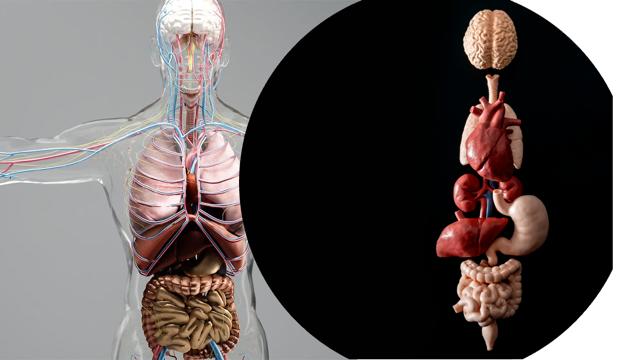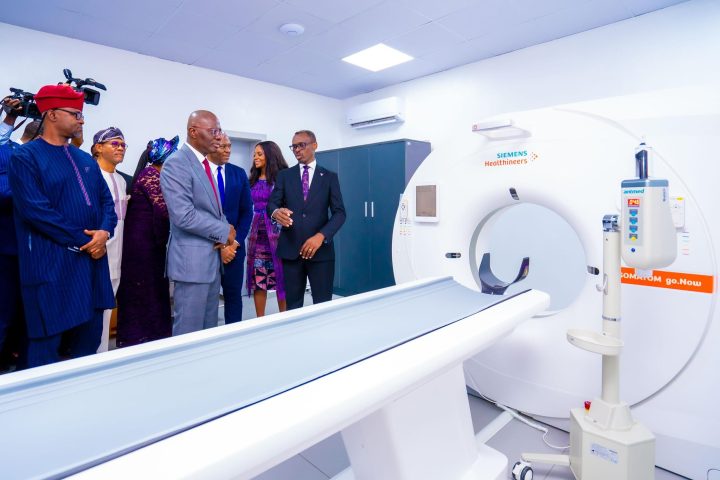You are as old as you feel is no longer an adage but literal. You may be 48 years old but your body may be diseased to such an extent that your organs are more than 50 years old.
Ageing predisposes the body to an increased risk of diseases such as heart attack, diabetes, stroke, pulmonary diseases, and dementia. As the body ages, biochemical changes occurring in the cells lead to the deterioration of the structure of tissues and their ability to function normally. In mice models, ageing and its effects on the molecular structure and function in many organs of the body, including resistance and susceptibility to associated ageing diseases, have been documented in such organs as the brain, heart and kidney.
Join our WhatsApp ChannelStudies in animal models show that the rate of ageing is different between individuals. In other words, individuals of the same chronological age have different rates of ageing. This also applies to different ageing rates between organs of the same body ie an organ can age faster than others leading to health risks and short mortality.
Measurement of ageing as relates to biological age uses such methods as tracking the microbial composition of the gut system, determining the accumulation of DNA mutations over a person’s lifetime, and tracking the methylation ageing clocks or changes in the epigenome, which is the sum total of chemical tags on a person’s DNA. In recent years, algorithms based on the aforementioned indicators of ageing are being used more frequently to predict a person’s biological age. Biological age (ie how old the cells of the body are) is often higher than chronological age (ie a person’s date of birth).
READ ALSO: US Authorities Approve Groundbreaking Sickle Cell Treatments, Including One That Uses CRISPR
Wyss-Coray and coworkers writing in the 6 December 2023 edition of the journal, Nature, reported different rates of ageing in human organs. The researchers identified unique-organ proteins seen in the plasma portion of blood and used machine-learning algorithms to assess and track the production levels of these proteins as a function of human ageing for any organ.
To determine ageing in organs, Wyss-Coray and coworkers measured nearly 5,000 proteins from 11 organs including brain, lung, heart, pancreas, adipose tissue, artery, immune tissue, intestine, liver, muscle, and kidney. About 850 organ-specific assortment of plasma proteins were identified. The levels of these proteins were measured in blood samples from more than 1,398 healthy people between ages 27 and 104 with an average age of 75. The information was used to train machine-learning algorithms to estimate chronological age in the population based on the protein signatures for each organ. The researchers used these protein signatures to scan the blood samples of 5,676 people from 5 previous medical studies in order to test for how fast or slow their organs were ageing. The ageing model produces an “age gap” for each person, by measuring the person’s biological age in relation to other same-aged peers based on their molecular profile (ie protein signatures).
The study shows that all the selected organs are subject to an increased rate of ageing with some people having extreme ageing in one or more organs compared with the rest of the population. The study further observed that about 96 people showed accelerated ageing in multiple organs. This type of accelerated ageing is linked to a higher prevalence of disease. Individuals having one organ showing particularly advanced ageing have a higher risk of premature death.
Overall, the study showed that the higher the rate of ageing in an organ, the higher the disease risk. In other words, when your biological age is older than your chronological age, the risk of death and diseases related to that part of the body substantially increases. Thus, the biological age of a person’s organs predicts future health problems. About 113 individuals who participated in the study had accelerated heart ageing predisposing them to as much as 250% increased risk of heart failure!
The study found that accelerated organ ageing resulted in 20-50% risk of higher mortality, and organ-specific diseases resulted in faster ageing of those organs. For example, obesity ages the kidney, heart attack ages the heart, Alzheimer’s ages the brain, etc. Diseases like heart attack and Alzheimer’s were strongly associated with increased ageing in almost all organs.
People suffering from hypertension had kidneys prematurely aged one year older than their same-aged peers. Those with diabetes had their kidneys prematurely aged by more than 15 months. The same pattern is seen with people who are suffering from atrial fibrillation (irregular heartbeats), their hearts showed premature ageing of more than 33 months, while those who had had heart attacks showed heart premature ageing of approximately 31 months.
The study is remarkable in its demonstration of how plasma proteomics and machine learning can be employed to non-invasively measure organ health and ageing in living individuals. The understanding of how organs age in relation to illness may also help doctors provide lifestyle advice to their patients. Thus, in future, scientists can use protein biomarkers to identify targets for anti-ageing drugs.



















Follow Us